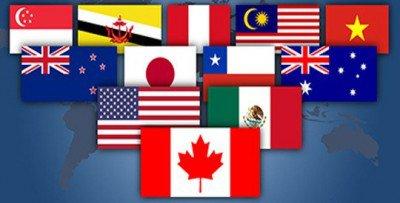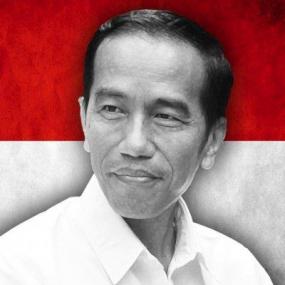
Nearly eight months after the Trans-Pacific Partnership (TPP) was signed, its fate is still up in the air. While giving a speech in Havana on Sept. 26, Japanese Prime Minister Shinzo Abe reiterated his commitment to ratify the agreement before the end of the year. On the same day, Japan's legislature convened for a 66-day special session to discuss, among other things, bills to adopt the TPP. Given the ruling Liberal Democratic Party coalition's supermajority in both houses of the legislature, the TPP is almost certain to pass in Japan. But that will do little to quell regional doubts over the deal's future, which has become increasingly subject to the vagaries of U.S. politics.
Analysis
The TPP's 12 parties signed the agreement in February after more than a decade of negotiations. In that time, the pact grew from a minor free trade agreement between four Pacific states into a monumental structure with economic and geopolitical implications. Once the United States and Japan entered into the talks — in 2008 and 2013, respectively — the TPP became a cornerstone of each country's strategy for the Asia-Pacific region. The deal then became intertwined with the broader struggle among signatory nations to constrain China's rise — or, at least, to ensure it adheres to established economic and political rules. And though that aspect of the TPP won over the U.S. national security establishment, other segments of American society and politics are critical of its social and economic consequences.
From the negotiating table to the U.S. Congress floor
Now the TPP's future hinges to a great extent on how lawmakers and the next president of the United States handle these conflicting perceptions. Although it was signed in February, the TPP will take effect only if no fewer than six member states representing at least 85 percent of the pact's total gross domestic product have ratified it in their legislatures. Since the United States alone accounts for more than 60 percent of the 12 countries' combined GDP, Washington's consent will make or break the deal.
It is too early to tell whether the United States will eventually ratify the TPP, one of President Barack Obama's signature initiatives. Regardless, it is becoming increasingly clear that Congress will not approve or even discuss the deal before the Nov. 8 presidential election, despite the Obama administration's efforts to move the issue forward. On Aug. 26, U.S. Senate Majority Leader Mitch McConnell affirmed that the Senate would not vote on TPP this year. Several key senators and representatives, meanwhile, have wavered in or altogether rescinded their support for the agreement, and both the Republican and Democratic presidential candidates have stated their unequivocal opposition to it. Of course, public statements by politicians are far from binding — especially in an election year. But for now, these comments provide the most reliable barometer of congressional and popular support for the deal, and, in turn, its chances of taking effect.
High stakes for East Asia
Leaders from other signatory states, such as Singapore's Lee Hsien Loong, are surprised and dismayed that the fruits of 10 years of painstaking negotiations could well die on the floor of the U.S. Congress. After all, several participating countries — not least of all Japan — have undertaken politically costly domestic reforms to facilitate accession to the pact. The TPP gave Shinzo Abe the incentive and rationale he needed to break up Japan's long-standing and powerful agriculture lobby, and it served as an impetus for other facets of his Abenomics reform program. Other signatories, such as Vietnam, promised equally substantial and politically sensitive reforms.
The United States' failure to ratify the TPP could prompt countries such as Vietnam and Malaysia to question their participation in the agreement. Vietnam has already announced that it will not ratify the agreement until the United States has passed it or demonstrated its intent to do so. How other signatories respond will depend on the outcome of the U.S. presidential vote — and on the direction public discourse over the deal takes after the election. Notwithstanding both candidates' opposition to the TPP, a Hillary Clinton administration would be more likely to push for its passage than a Donald Trump administration would be. Furthermore, after a meeting among the signatory countries in September, it was announced that the deal will not be renegotiated, meaning that the U.S. Congress cannot amend the pact while discussing its ratification. In the meantime, other TPP members are unlikely to renege on the deal — which must be ratified by February 2018 — though they may call with growing frequency and urgency for Washington to take action.
As the debate over the TPP, and free trade in general, rages in the United States, China's leaders are doubtless watching with great interest. Whatever the deal's stated goals, keeping China in check is among its core purposes. This is not to suggest that the TPP or its primary backers, the United States and Japan, are trying to undermine China. But agreements like the TPP, combined with increased regional security cooperation, aim to ensure that as China's economic heft and military power grow, Beijing will abide by predetermined rules — or else risk isolation. The pact's political failure would be a welcome development for Beijing.
The demise of the TPP would not, however, spell the end of the United States' influence in East Asia. Deal or no deal, Washington maintains a robust presence in every sphere of East Asian geopolitics. Moreover, China's rapidly expanding military power and unclear intentions pose enough of a threat to smaller East Asian states that they would be loath to sever ties with the United States, no matter what happens to the TPP. Finally, skepticism toward free trade — so rampant and heated an issue in U.S. and European politics of late — has not yet taken hold in East Asia. For the most part, the region and its major economies still consider the free flow of goods, capital and people across borders a positive development. These factors make it unlikely that the countries under Washington's strategic umbrella will pull out of the TPP in the near term, or that the region will turn its back on freer trade with the world's leading economy. Nonetheless, failure to ratify the agreement would inevitably alter regional perceptions of the United States and its role in the Asia-Pacific, perhaps damaging Washington's strategic partnerships and interests in the region in the long run.
Strategic Review has a content-sharing agreement with Stratfor global intelligence.








%20resized.png)
